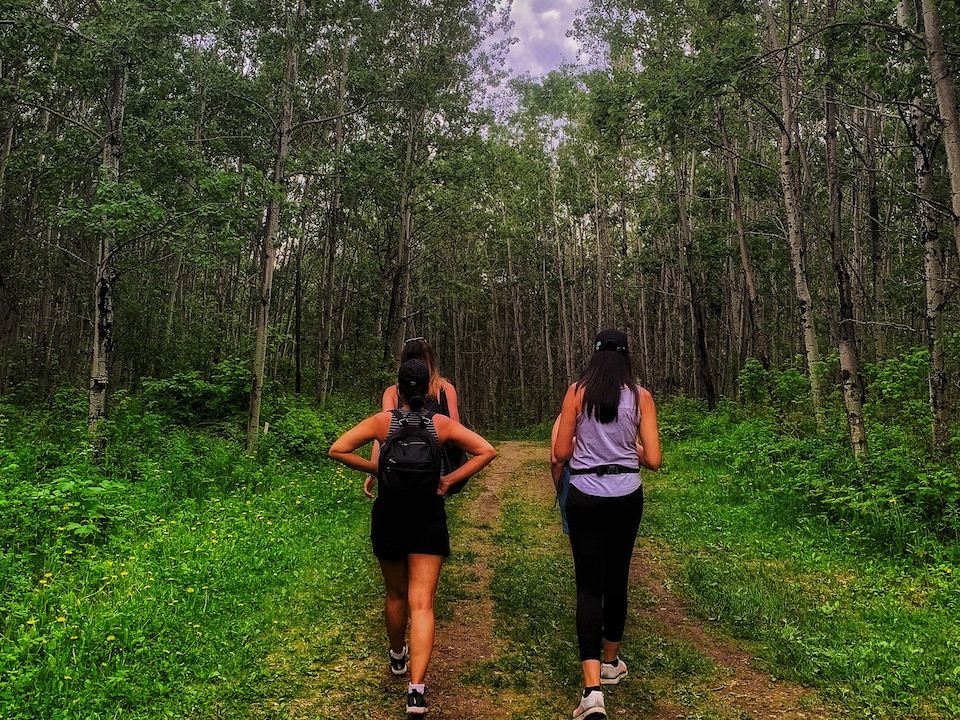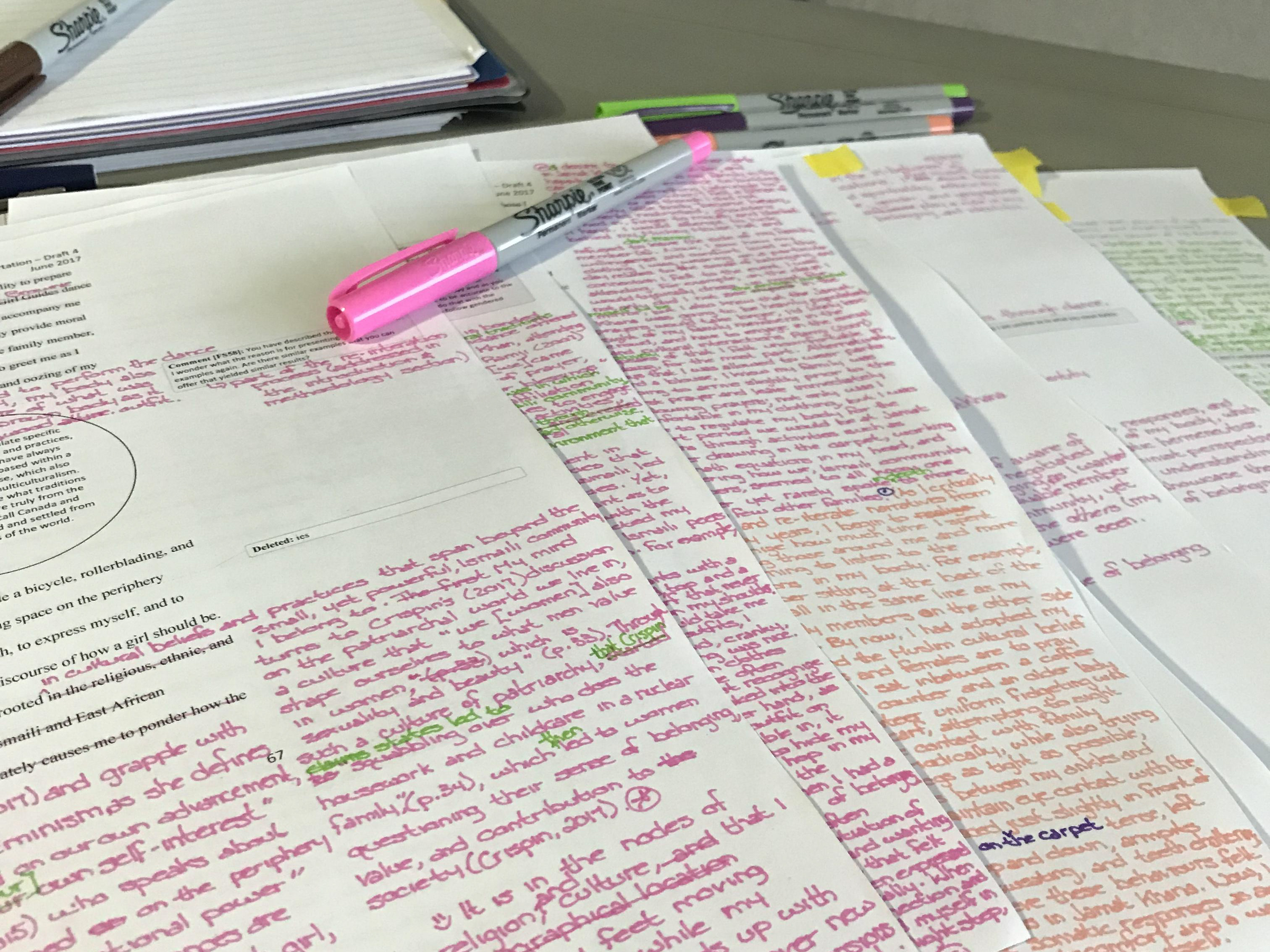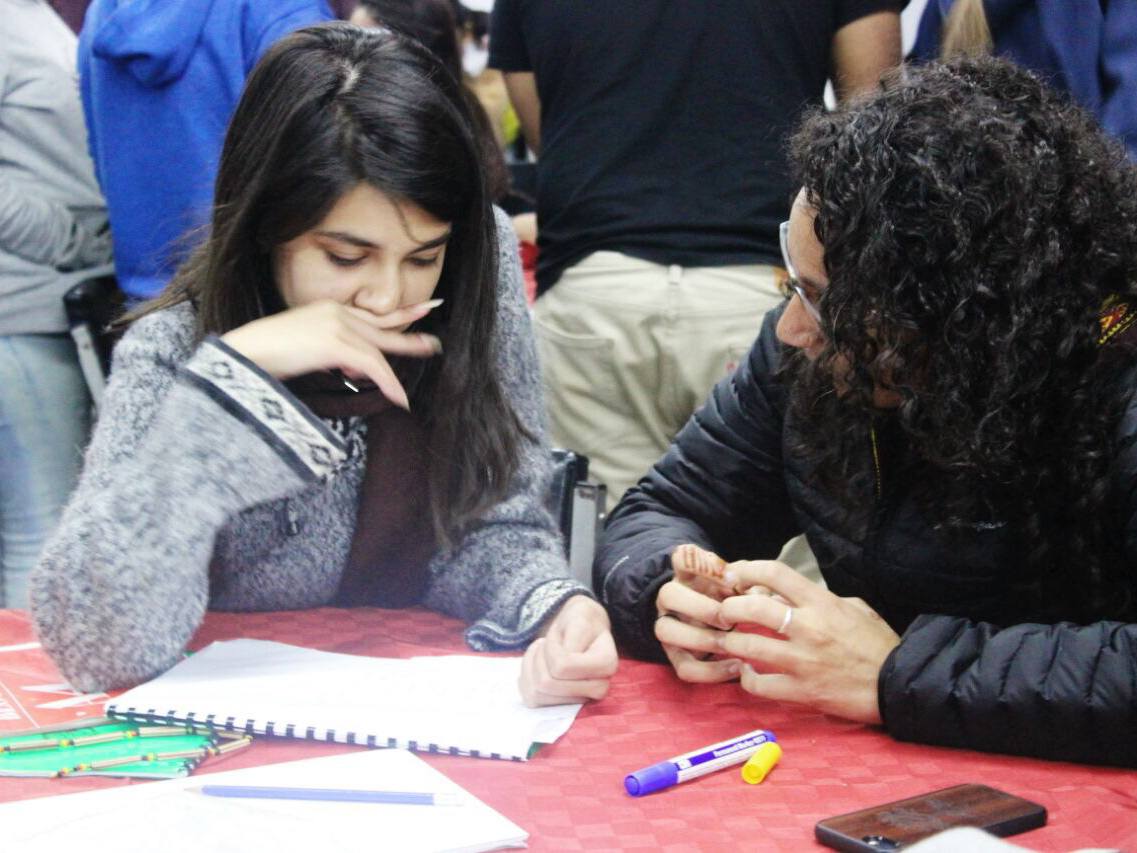As an emerging scholar, I weave together research experiences of migration histories, living in Canada as a newcomer, intersectional feminist theories, narrative methodologies, therapeutic recreation practices, developmental studies across the lifespan, cultural studies, religious and spiritual discourses, health education, social policy and activism, and geography.
My interdisciplinary research is driven by personal experiences (autoethnography) and the experiences of others (participatory action research). My approach is inspired by children and youth's ability to negotiate and navigate challenging social spaces while having a limited ability to articulate what and how they navigate such spaces through sport and recreation.
My research has remained within qualitative methodologies and has included focus group studies, active community-based research, autoethnography, and intervention and impact evaluation research from a trauma-informed and culturally safe perspective. I attempt to engage in creative, innovative, and interdisciplinary research from a practical, accessible, and community-oriented perspective that continuously seeks to benefit children, youth and families, especially those living as marginalized and minoritized members of the greater community.
Current Research
Recreation as a Meaning Making Process for Newcomers to Canada
This research aims to unpack the pre- and post- migration narratives of newcomers to Canada in order to understand how recreation can act as an intentional tool to support migration.
Furthermore, the research aims to understand how newcomers understand, articulate and participate in recreation and leisure practices; the similarities and differences from one context to the next.
This research is in the early phases of planning, development, and networking with community partners. It was initiated in late 2020 with the support of the Faculty of Health and Community Studies, MacEwan University.
Stay tuned for updates!
Exploring the Relationship Between Recreation and Leisure and Faith-Based Community Engagement
This research project, rooted in the outcomes of my doctoral research, explores how recreation and leisure activities connect and/or distance a young person from their faith.
This research is in the early phases and aims to be actively initiated during the 2020-2021 academic year. Funding from MacEwan University, Faculty of Health and Community Studies.
Stay tuned for updates!
Research Experience
Masters in Child and Youth Care
The Use of Spirituality in Counselling Practices with Adolescents
Through a narrative inquiry method with soon to be and recently graduated practitioners, this research explored the factors that prohibited and/or contributed to counsellors including spirituality in their practice with youth. Personal experiences of grappling with spirituality and religion, professional policies regarding practitioners practice frameworks, and the lack of educational training to support practitioners in including spirituality in their practice all played into a practitioners' reasoning to engage in and/or resists the inclusion of spirituality in their practices. Implications suggested in this studying include recognizing and honouring that children and youth are spiritual beings, that educational programs support practitioners in developing spiritual training, and that social policy and field adapt practices to actively include spiritual conversations when working with children, youth, and families.
Strengthening Education Systems East Africa
In collaboration with the Aga Khan University, Global Affairs Canada, and Aga Khan Foundation Canada, a team of international and interdisciplinary scholars mapped educational services across Tanzania, Kenya and Uganda. Understanding educational opportunities, challenges, and successes within rural East African communities grounded this research. Key findings included: (1) concerns with access to educational sites, (2) sustainable and local resources usage in classrooms, (3) restricted and prescribed curriculum that is not contextualized, and (4) limited access to higher education and professional development for early years educators.
Doctorate in Child and Youth Care
Living in the In-between as an Ismaili Muslim Woman
An Autoethnography
Using an autoethnographic approach, this research explored the tensions of living in the in-between of social spaces as a first-generation Ismaili Muslim Canadian female. Using an intersectional third-wave feminist approach, the research continually strived to use personal narratives of being a brown body that performed in ways unexpected by family and community members, being a young child who unknowingly challenged gender binaries, and who voiced concerns and discomforts with religious practices through physical responses. Written for scholars, practitioners, and family members, this study offers suggestions on understanding and responding to children and youth's verbal, non-verbal, and often unconscious responses to experiences they are having, how to foster safe spaces for children, youth and young adults to explore their sense of belonging and identity, and encourages practitioners to engage in difficult conversations with clients who are minoritized.
Sisters Rising
Networks for Change and Wellbeing Partnership Study
Ongoing Study (2018-2019 involvement)
An Indigenous-led research project based in British Columbia, the Sisters Rising research team works in communities conducting art- and land-based workshops with Indigenous girls, young women, youth of all genders, including 2 spirited and LGBTTQQ youth. The vision of Sisters Rising is to support healing in relation to historical sexualized and gender-based violence while centering Indigenous teaching, perspectives and to retrace circles of relation with land and bodies.
Exploring the Capacity of Indigenous Not-for-Profit Early Learning and Child Care Programs in British Columbia
BC Association of Aboriginal Friendship Centres & the University of Victoria: In Collaboration
Understanding how local Indigenous and community cultures, language, practices, and histories play a foundational role in children's cultural identity and health trajectories, this studies aims to understanding the organizational, funding, and structural factors that contribute to the successful running of urban Indigenous not-for-profit Early Learning Child Care Centres centres. The aim of the research is to offer recommendations and note implications arising from this study to support the continued operational success of urban Indigenous Early Learning Child Care Centres across British Columbia.




